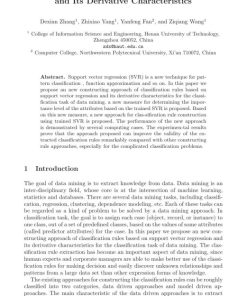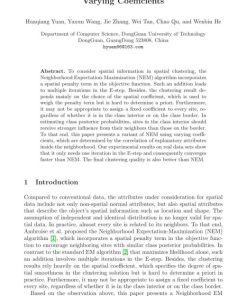Battery Management System and Its Applications 1st edition by Xiaojun Tan, Andrea Vezzini, Yuqian Fan, Neeta Khare, You Xu, Liangliang Wei ISBN 1119154006 978-1119154006
$50.00 Original price was: $50.00.$25.00Current price is: $25.00.
Authors:Tan, Xiaojun;Vezzini, Andrea;Fan, Yuqian;Khare, Neeta;Xu, You;Wei, Liangliang; , Series:Management [478] , Author sort:Tan, Xiaojun;Vezzini, Andrea;Fan, Yuqian;Khare, Neeta;Xu, You;Wei, Liangliang; , Languages:Languages:eng , Published:Published:Nov 2022 , Publisher:Wiley
Battery Management System and Its Applications 1st edition by Xiaojun Tan, Andrea Vezzini, Yuqian Fan, Neeta Khare, You Xu, Liangliang Wei – Ebook PDF Instant Download/Delivery. 1119154006, 978-1119154006
Full download Battery Management System and Its Applications 1st edition after payment

Product details:
ISBN 10: 1119154006
ISBN 13: 978-1119154006
Author: Xiaojun Tan, Andrea Vezzini, Yuqian Fan, Neeta Khare, You Xu, Liangliang Wei
BATTERY MANAGEMENT SYSTEM AND ITS APPLICATIONS
Enables readers to understand basic concepts, design, and implementation of battery management systems
Battery Management System and its Applications is an all-in-one guide to basic concepts, design, and applications of battery management systems (BMS), featuring industrially relevant case studies with detailed analysis, and providing clear, concise descriptions of performance testing, battery modeling, functions, and topologies of BMS.
In Battery Management System and its Applications, readers can expect to find information on:
- Core and basic concepts of BMS, to help readers establish a foundation of relevant knowledge before more advanced concepts are introduced
- Performance testing and battery modeling, to help readers fully understand Lithium-ion batteries
- Basic functions and topologies of BMS, with the aim of guiding readers to design simple BMS themselves
- Some advanced functions of BMS, drawing from the research achievements of the authors, who have significant experience in cross-industry research
Featuring detailed case studies and industrial applications, Battery Management System and its Applications is a must-have resource for researchers and professionals working in energy technologies and power electronics, along with advanced undergraduate/postgraduate students majoring in vehicle engineering, power electronics, and automatic control.
Battery Management System and Its Applications 1st Table of contents:
-
Introduction to Battery Management Systems
- Overview of battery technologies and their importance in modern applications.
- What is a Battery Management System (BMS)?
- The role of BMS in energy storage systems, electric vehicles (EVs), and renewable energy integration.
- History and evolution of BMS technologies.
-
Fundamentals of Battery Chemistry
- Types of batteries used in BMS (Li-ion, Lead-Acid, Solid-State, etc.).
- How different battery chemistries affect the design of BMS.
- Charging and discharging processes in batteries.
- Battery aging and degradation mechanisms.
-
Key Functions of a Battery Management System
- Voltage, current, and temperature monitoring.
- State of Charge (SOC) estimation.
- State of Health (SOH) estimation and diagnostics.
- Protection mechanisms: overcharge, over-discharge, thermal management, etc.
-
Designing a Battery Management System
- Basic components of a BMS (hardware and software).
- Battery balancing techniques: passive vs. active balancing.
- Safety features in BMS design.
- Communication protocols used in BMS (CAN, I2C, SMBus, etc.).
-
BMS for Electric Vehicles (EVs)
- Specific requirements of BMS in electric vehicle applications.
- How BMS ensures the safety, performance, and longevity of EV batteries.
- Battery pack design and thermal management.
- BMS integration with EV control systems (motor controllers, regenerative braking, etc.).
-
BMS in Energy Storage Systems
- Role of BMS in large-scale energy storage (grid-scale batteries, solar, and wind integration).
- Optimization of battery performance in stationary storage applications.
- Challenges in scaling BMS for large energy storage systems.
- Smart grids and BMS interoperability.
-
Battery Diagnostics and Health Management
- Techniques for diagnosing battery faults.
- Monitoring battery health over time.
- Predicting battery failures and extending battery life.
- Fault detection, isolation, and recovery strategies in BMS.
-
Advanced Battery Management Techniques
- Machine learning and AI applications in battery management.
- Advanced algorithms for SOC/SOH estimation.
- Predictive maintenance and data analytics.
- Next-generation BMS technologies (solid-state batteries, wireless BMS).
-
Thermal Management in Battery Systems
- Importance of temperature control for battery efficiency and lifespan.
- Techniques for thermal management in BMS.
- Cooling strategies: passive vs. active cooling systems.
- Integration of thermal sensors and control systems.
-
BMS in Renewable Energy Systems
- BMS for solar energy storage systems.
- Wind energy and BMS integration.
- Microgrids and their reliance on BMS.
- Optimizing energy harvesting and storage efficiency.
-
Regulatory and Safety Standards in Battery Management
- International standards for battery safety and performance (ISO, UL, IEC).
- Regulatory requirements for electric vehicles and renewable energy systems.
- Safety protocols for handling battery failures, fires, and thermal runaway.
- Environmental considerations in battery disposal and recycling.
-
Challenges and Future Directions of BMS
- Current challenges in battery management: efficiency, cost, and safety.
- The future of BMS technologies and integration with IoT and smart systems.
- The role of BMS in emerging technologies like electric aviation, autonomous vehicles, and energy independence.
- Sustainability and the future of battery materials.
-
Case Studies and Applications
- Real-world applications of BMS in various industries.
- Lessons learned from the design and deployment of BMS in EVs, energy storage systems, and other sectors.
- Industry leaders and innovations in BMS technology.
-
Conclusion
- Summary of key concepts and applications of Battery Management Systems.
- The growing importance of BMS in the transition to renewable energy and electric mobility.
- Future trends and the evolution of battery technologies.
People also search for Battery Management System and Its Applications 1st:
das marketing
das neue schwarz
das marketing der zukunft
das neue marketing-mindset
mindset ads












